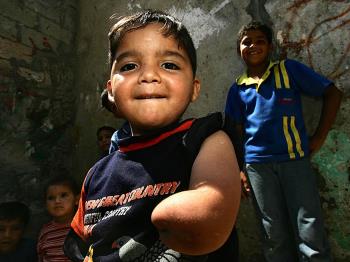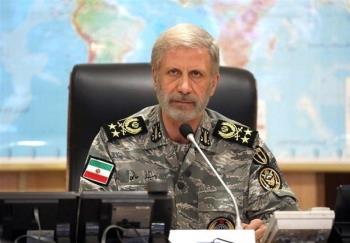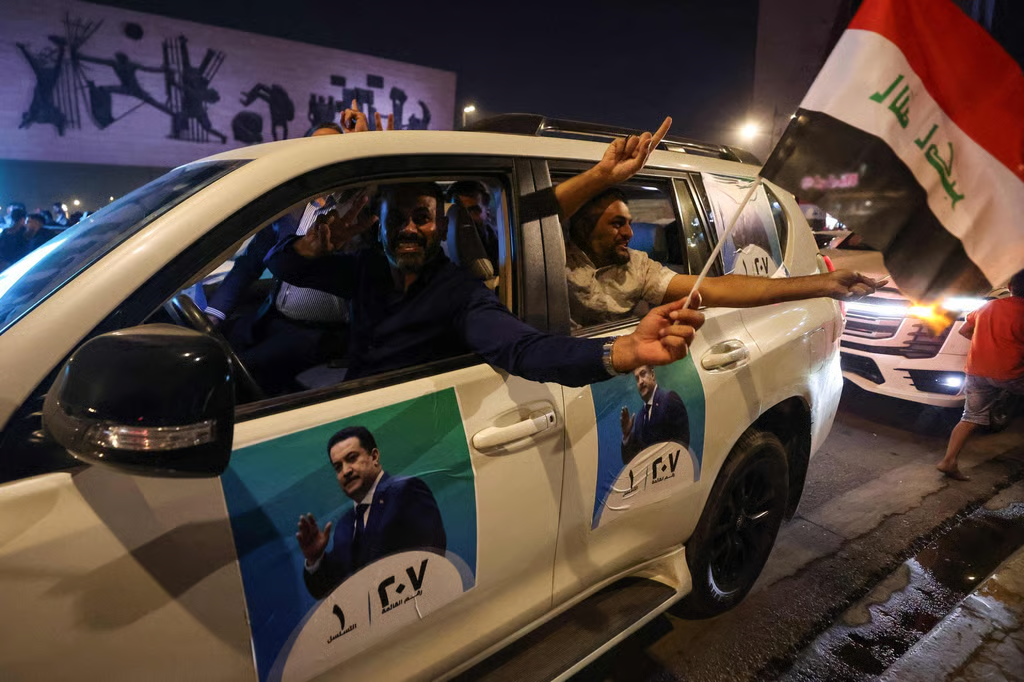Alwaght- Nearly a week after the sixth Iraqi parliamentary elections, the victory of coalitions and factions aligned with the resistance groups continues to draw significant attention in regional political and media circles, which are examining the reasons behind this political triumph.
According to the official reports, the Shiite coalitions have won 187 seats, securing a substantial share of the new parliament.
Meanwhile, we cannot ignore some media mischief and biased analyses aimed at downplaying this breakthrough and dismissing the political base and popularity of the pro-resistance discourse in the Iraqi society and the growing public trust by attributing this victory to supports by some regional powers and claims of foreign interference.
Analysts' narratives about the election tell us more about their own agendas than the actual realities of the vote or the genuine behavior of the electorate. These interpretations represent a clear attempt to tarnish public participation and question citizens' understanding of the country's situation.
However, the reality shows this victory, which is a product of the political maturity and growing political awareness of the people, is an outcome of political and social factors that have roots in deep-seated and historical experiences of people and ignoring it produces a naive analysis of this vote.
People trust security achievements of resistance factions
One of the reasons people once again have trusted the factions affiliated with the resistance forces is the considerable security achievements of these forces over the past decade. Iraq's security experience, especially during the rise of the ISIS terrorist group in 2014, has played a constructive role in shaping the public trust in the resistance groups.
When large tracts of Iraqi territories were seized and threatened by foreign-backed terrorists, it was the resistance groups that responded affirmatively to a call of mobilization by Shiite cleric Sayyed Ali al-Sistani and shortly shifted the balance of power to Baghdad's favor and prevented the capital and other strategic regions from falling to terrorists.
So, the relative calm and peace Iraq is enjoying today is a direct outcome of sacrifices of resistance commanders and fighters who blocked occupation of the country by the terrorists. Therefore, the popular vote to them is not a product of the passing emotional atmosphere post-ISIS, but a reflection of the profound trust in these groups that stood by people and saved the country at the hardest historical time of the country.
Political performance
Beyond their security experience, the political performance of the Shiite Coordination Framework (SCF) as the leading coalition representing the resistance discourse in Iraq has been pivotal in rebuilding public trust in the resistance factions. After entering Iraq's political structures seven years ago, these groups leveraged their security credentials and worked to stabilize the nation, aiming to become effective political players.
This political maturation bore fruit when Shiite representatives, through the SCF, selected Mohammed Shia al-Sudani as prime minister. This move broke protracted political deadlocks, paving the way for a government and a reform agenda.
This governance success demonstrated that the resistance movements could translate their influence from the battlefield to the political arena, a key factor in regaining public confidence. The tangible results of this shift were on full display in the recent elections.
After two decades of dwindling voter turnout, mainly driven by widespread corruption and government incompetence, Iraqis staged a dramatic reversal. Defying both domestic and international efforts to suppress the vote turnout rate, turnout surged by 14 percentage points. This surge signals a public making calculated choices based on observed performance, not propaganda. Voters cast their ballots based on a real-world assessment of the resistance factions' governance over the past three years.
The al-Sudani government’s ability to steer the country for three years without major political crises is a direct result of the SCF's sustained coordination and backing in parliament and government. This unified support created a firewall, preventing foreign actors from using divisive tactics to plunge Iraq back into instability.
Resistance rising from ordinary people
This election victory showed that the resistance forces, just contrary to the foreign allegations, are not imported or imposed elements. Rather, they have risen out of the heart of the Iraqi society, local culture, and social and tribal body of the country.
They see themselves as an integral part of the people, not separate from them, a core belief that has allowed them to build a deep and enduring connection with the public. This social and cultural bond has matured politically over the years, enabling the resistance factions to expand their role from the security sphere into economic and political arenas. Consequently, this track record of success has led the Iraqi people to place their trust not just in these groups' military capabilities, but also in their proven competence to tackle complex political and economic challenges.
Successful economic experience
The economic performance of the government of al-Sudani, too, has played a determining role in rebuilding public trust in the resistance-affiliated parties and coalitions. This government, having the backing of the SCF, has managed to substantially stabilize the once-fluctuating foreign currency price, free part of the oil revenues frozen by the US, and develop key infrastructural projects, bringing about relative stability to Iraq's market.
These concrete actions demonstrated to the public that the resistance factions possess capabilities that extend beyond security and politics to the effective management of the national economy. Their proven ability to navigate financial crises and develop critical infrastructure, combined with the stable political performance of Al-Sudani's government, convinced voters to place their trust in them once more. This support was not merely a relic of the ISIS era, but a direct result of a clear-eyed assessment of their competencies.
So, the public's vote was not a product of past threats, but a direct endorsement of their observed ability to govern effectively during both periods of stability and economic hardship.
Furthermore, the leaders of these factions, who now head major parties and coalitions, have cultivated a reputation for greater financial and ethical transparency compared to many of their political rivals. This perceived integrity has significantly boosted their public trust, making it a key factor in the widespread support for Al-Sudani and other Shiite groups in the recent elections.
Additionally, having in mind that expulsion of the American military forces is one of the main demands of the Iraqis, al-Sudani's government has struck agreements with Washington for exit according to a timetable. So, these measures, having yielded results under the pressure of the continuous pressure of the resistance forces in the parliament and government, did not stay away from the public awareness. As a result, the public trust reflected itself in the ballot boxes.
The rebuilt trust of the Iraqis in the Shiite factions in the recent election suggests that people still endorse resistance and this alignment does not dwindle even under foreign pressure. In other words, the public convergence with the resistance groups pose an essential obstacle to any effort to sink Iraq back into political instability.



























